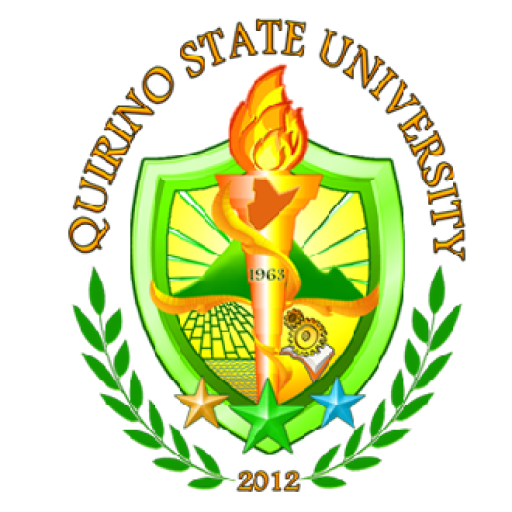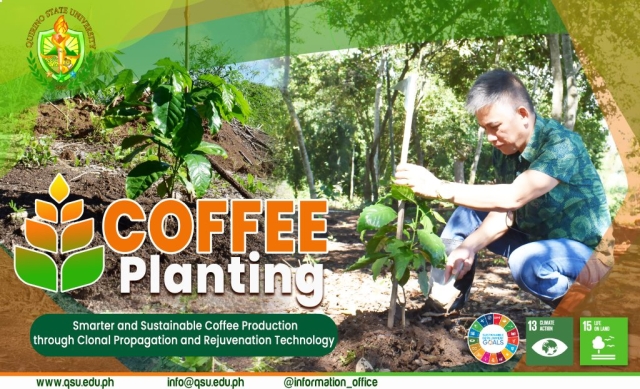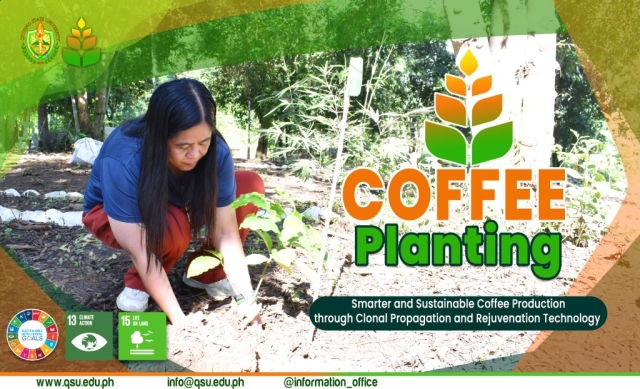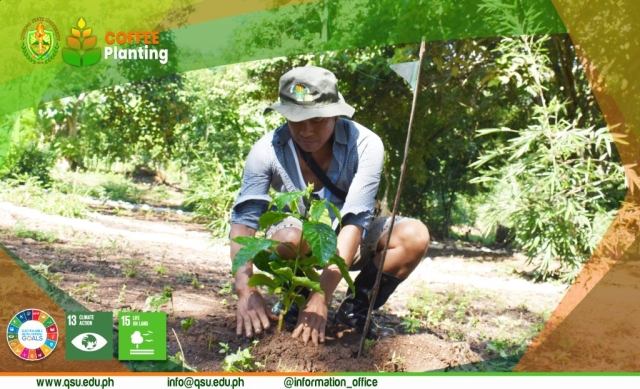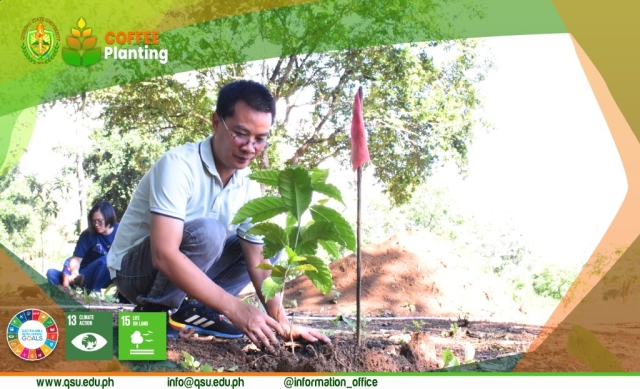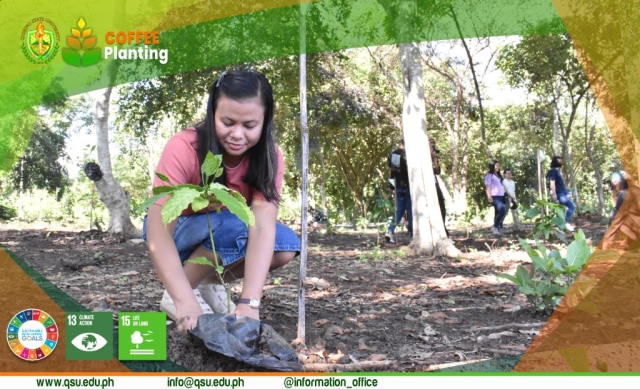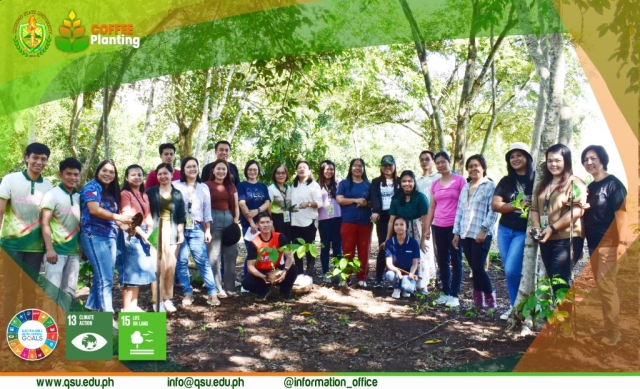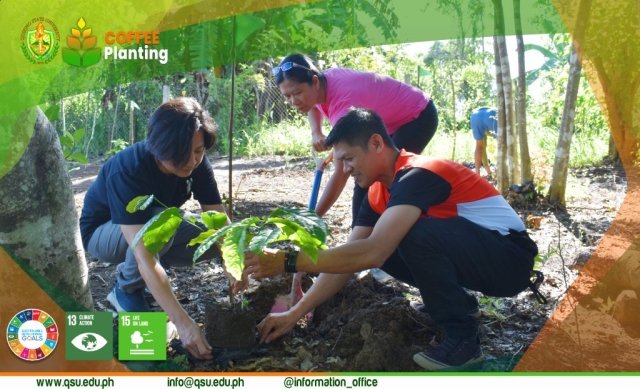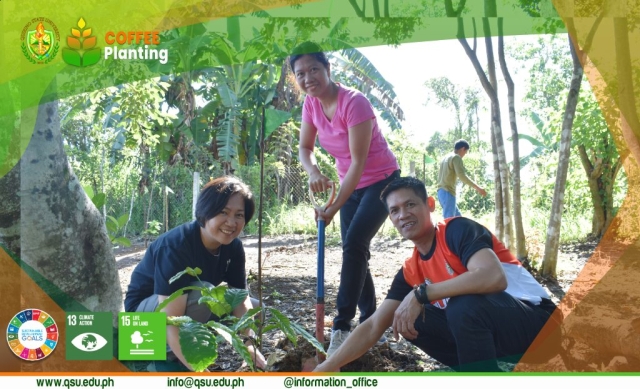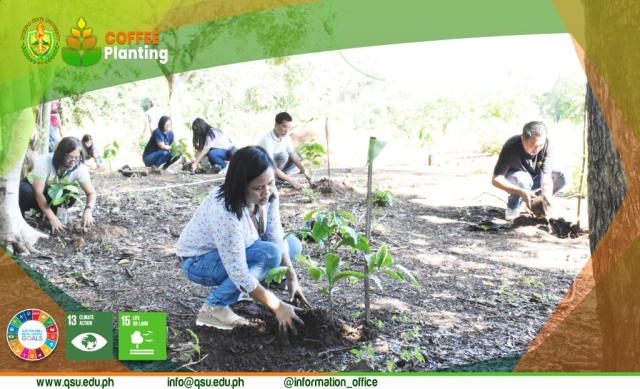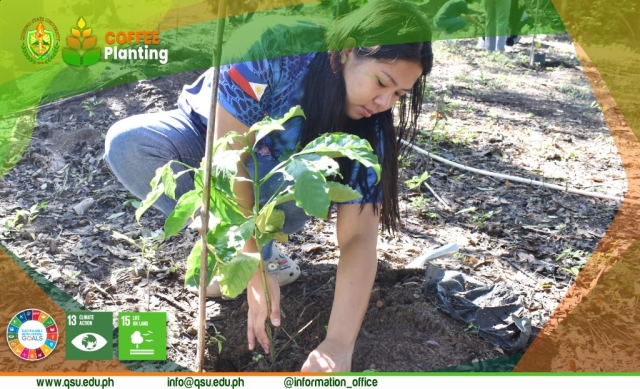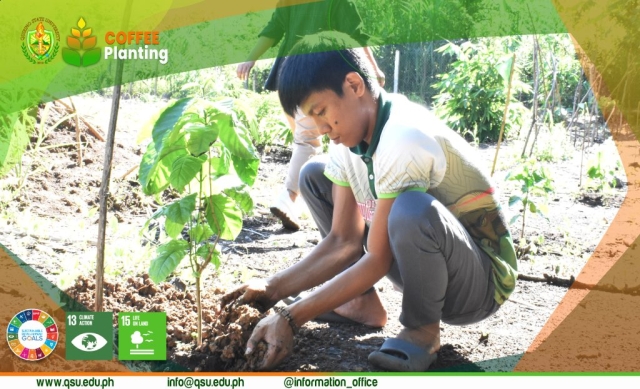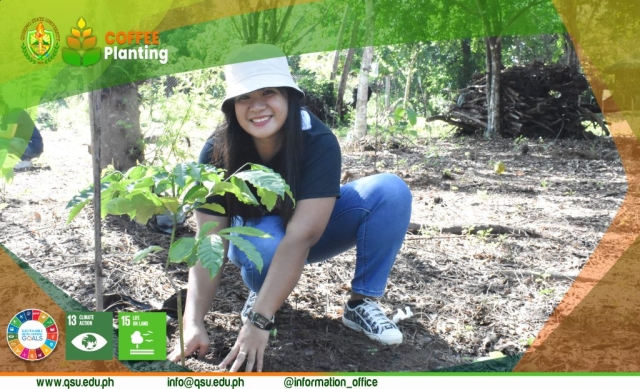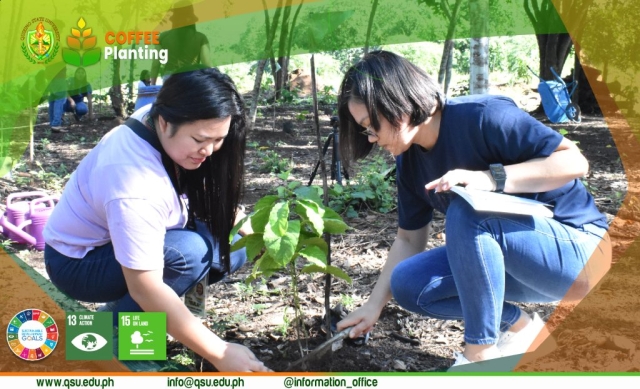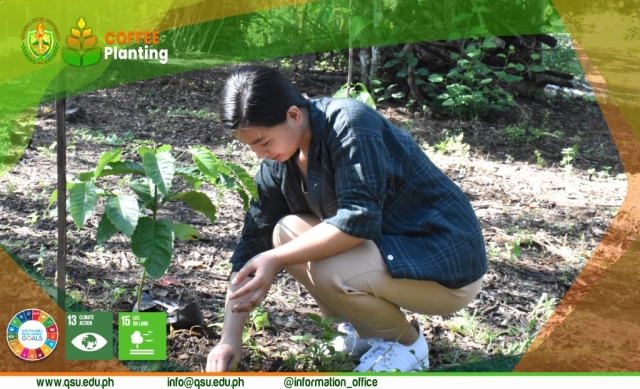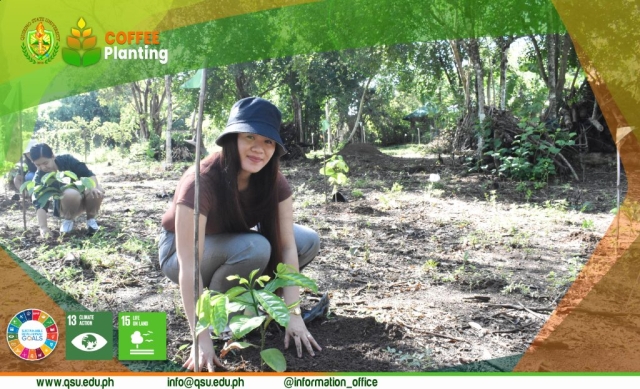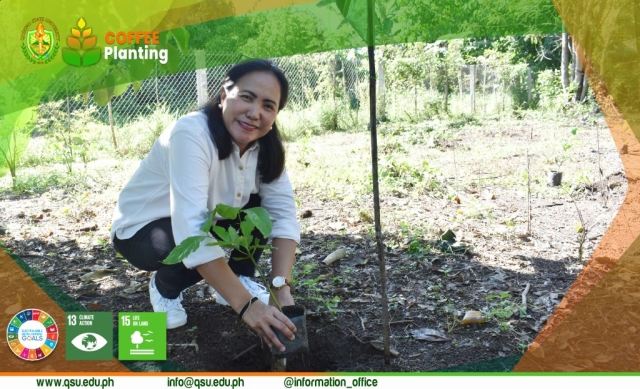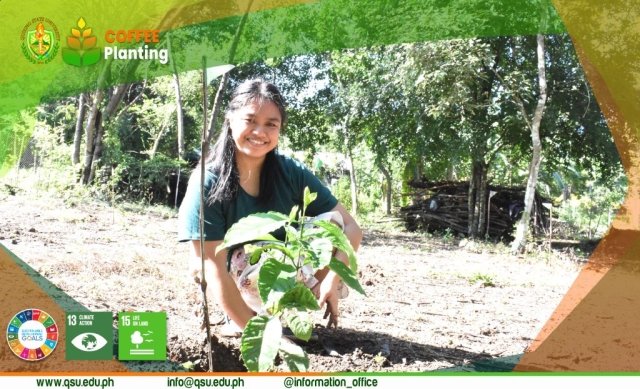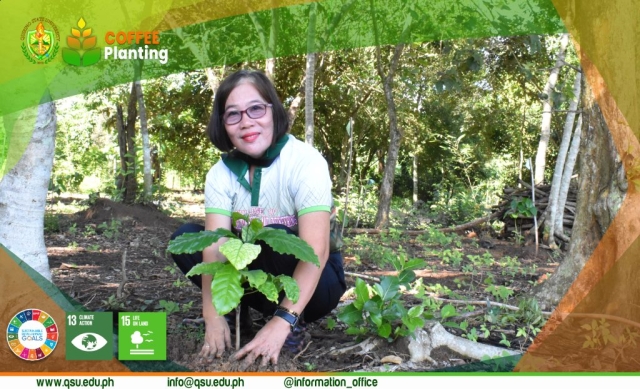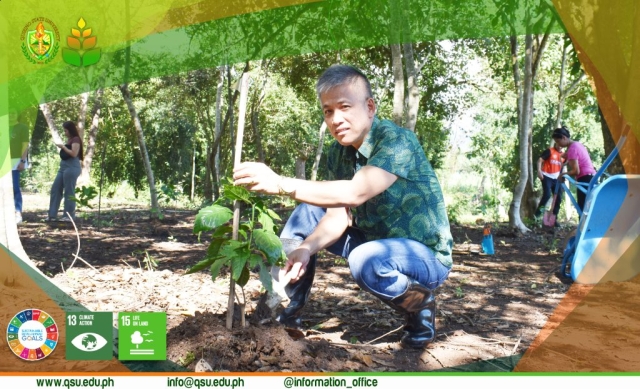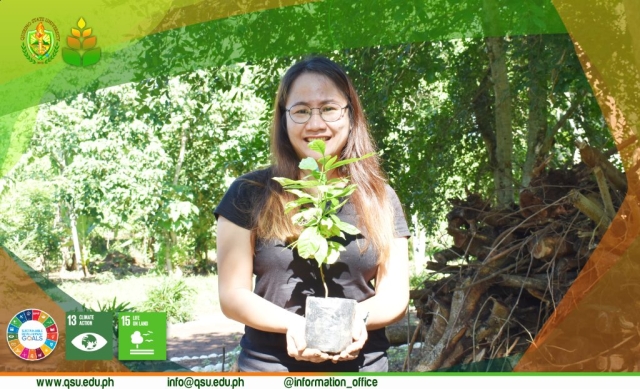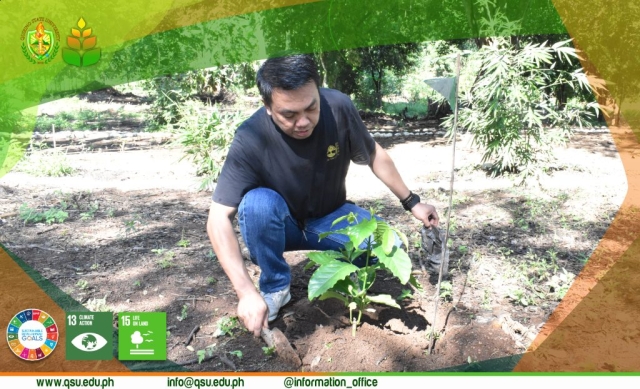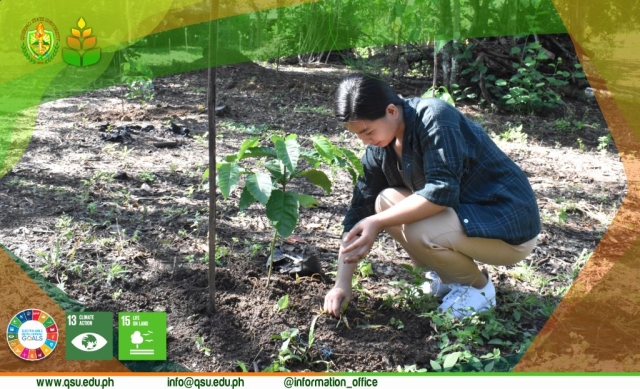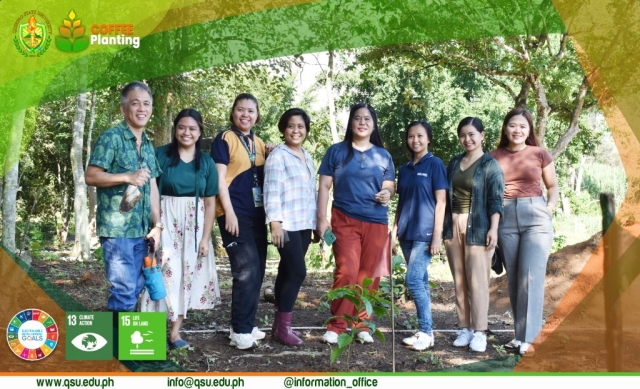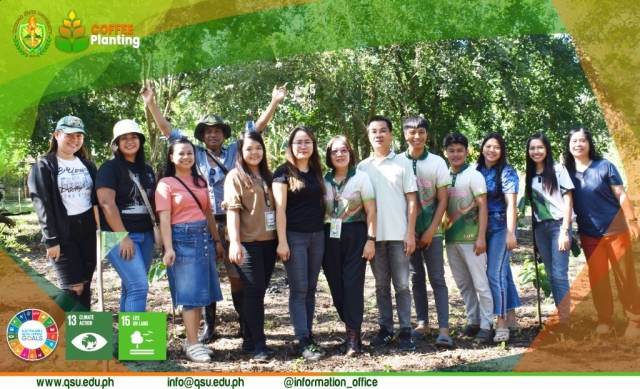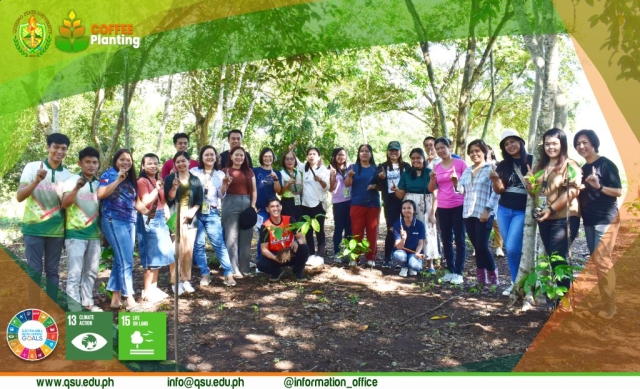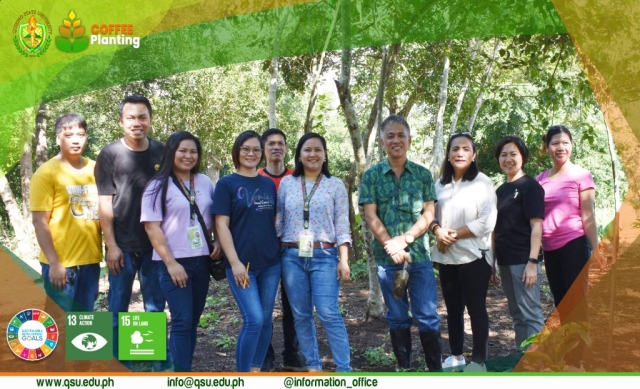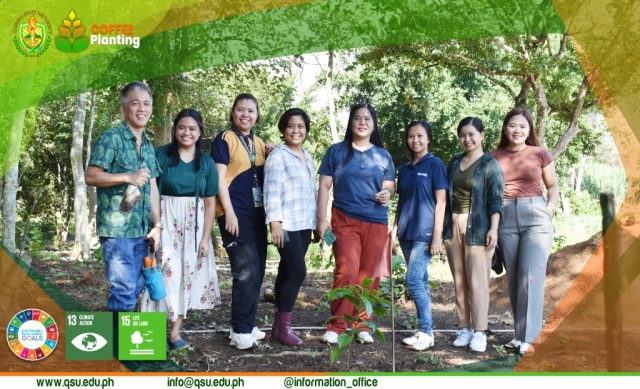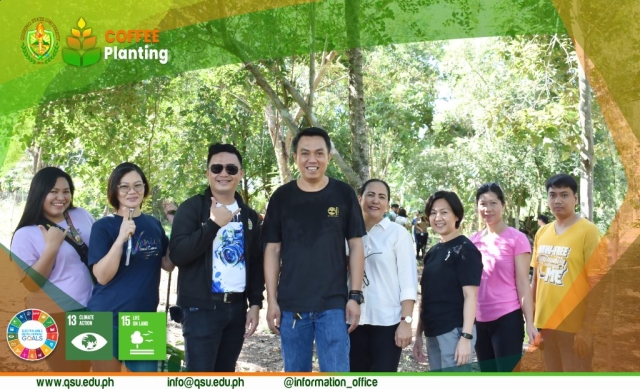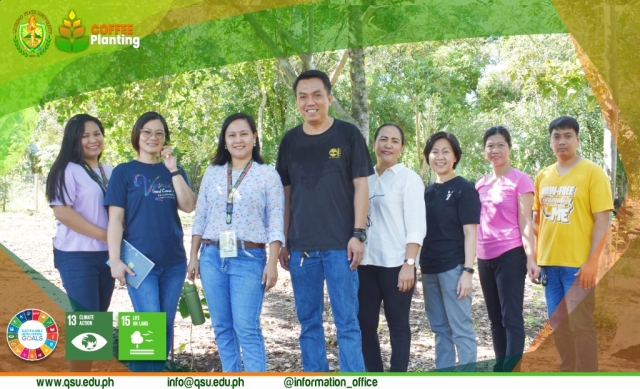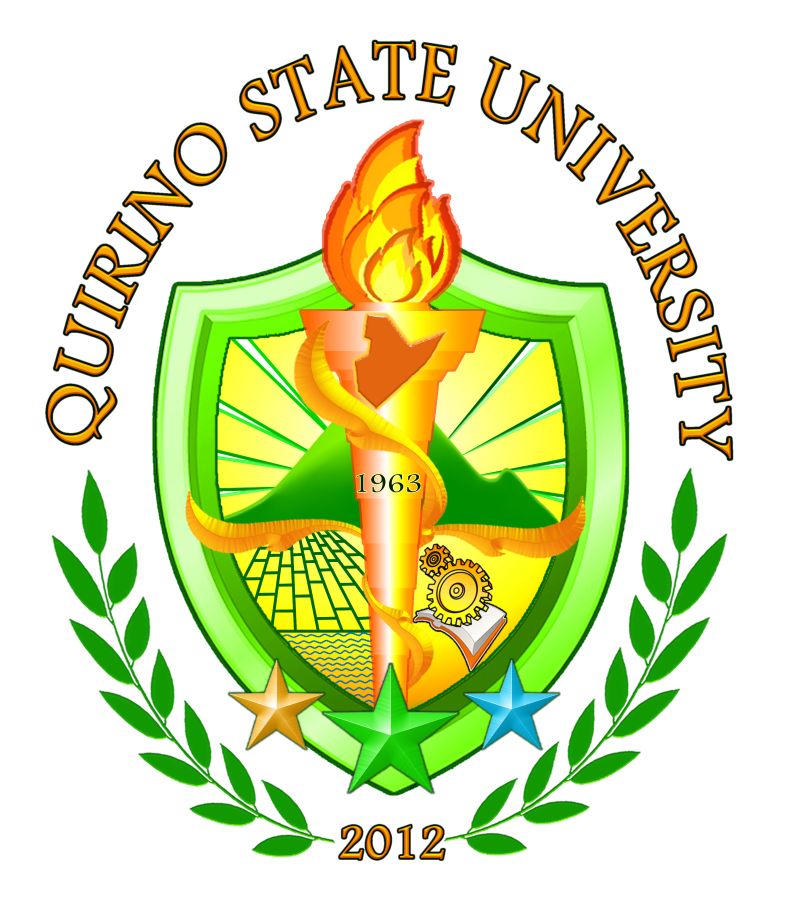As an offshoot of QSU’s project on “Smarter and Sustainable Coffee Production through Clonal Propagation and Rejuvenation Technology,” the Research and Development (R&D) Department conducted a tree-planting activity using cloned coffee sprouts at the Bambusari Eco-park, Diffun Campus.
Led by University President Hermenegildo F. Samoy, Jr. and Dr. Elizabeth T. Carig, a group of faculty and staff members participated in planting 100 cloned Robusta coffee planting materials on August 2, 2024. These sprouts were the result of QSU’s research into optimizing coffee growth and production through clonal propagation.
According to Dr. Carig, the project was inspired by the coppicing method used by coffee growers in Jose Ancheta, Maddela, Quirino which involves cutting trees at their base to stimulate the growth of shoots. While effective in rejuvenating old coffee trees, coppicing produces multiple sprouts, making it difficult to manage. QSU recognized this as an opportunity to develop a protocol for propagating coffee through cloning, using stem cuttings and various growth hormones.
Funded by the Department of Science and Technology (DOST) Regional Office 2 under the Grant-in-Aid Program, the research team adopted a four-phase approach to enhance coffee growth: rejuvenating older trees through coppicing, cloning thinned stems using growth hormones, producing planting materials, and capacity-building activities. The Mataga-ay Coffee Growers and Producers Cooperative (MCGPC) in Jose Ancheta played a crucial role in the project’s implementation.
The Smarter and Sustainable Coffee Production Project is spearheaded by project leader Dr. Elizabeth T. Carig and study leader For. Joel G. Carig. Together with a team of forestry experts and researchers, including For. Jonalyn J. Quinan, For. Gerlyn B. Opinano, For. Anjomar P. Tuazon, For. Arnold N. Pugong, Dr. Dyanika P. Nolasco, Ms. Danisse Mae P. Hernandez, Ms. Ailyn P. Padrigo, and Ms. Jesa Jane P. Sales, they continue to develop innovative strategies to enhance coffee production sustainability.
Beyond boosting coffee production, the clonal propagation technology promotes organic farming and environmental protection. By integrating coffee trees into forests, this approach helps preserve the natural ecosystem. It also fosters greater research involvement among faculty and students, particularly in Agriculture, Forestry, and Biosystem Engineering programs. | QIO
